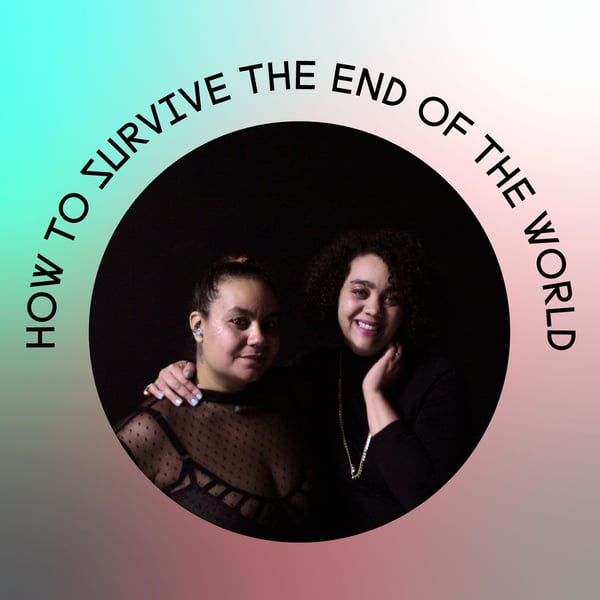Freedom Dreams
How to Survive the End of the World
How to Survive the End of the World
4.8 • 2K Ratings
🗓️ 21 March 2022
⏱️ 29 minutes
🧾️ Download transcript
Summary
We're so excited to share an episode from a new podcast we think you'll love called Freedom Dreams. It's a show that explores historical examples of experiments in liberation, and dreams about how to expand the work already being done to build the abolitionist world we want to see beyond police and incarceration.
SUBSCRIBE TO FREEDOM DREAMS WHEREVER YOU LISTEN TO PODCASTS.
In this episode, the Freedom Dreamers head over to The James and Grace Lee Boggs School in Detroit to learn about place-based education and its relationship to community action. Many think of school as a place where you get to know yourself…but what if it was also how you got to know your community? Ethan Lowenstein teaches us the basics of place-based education and how it knocks down the wall between school and community to better prepare students to live empowered, active lives. Then Julia Putnam, Amanda Rosman, and Marisol Teachworth (administrators at the Boggs School) tell us how language arts, science, and social studies classes can bring students into their communities to practice problem solving and engaging with the people around them. Our guests teach us about visionary organizing and how it focuses not just on what systems we’re tearing down but also what we’re building up. Listen in for these alternative models of academic success!
Transcript
Click on a timestamp to play from that location
| 0:00.0 | We're going to play an episode from a new podcast called Freedom Dreams, the show that |
| 0:21.8 | knows another world is possible, and they're talking to people building it. |
| 0:27.9 | Freedom Dreams comes out of the Detroit Justice Center, hosted by their brilliant founder, |
| 0:33.3 | Amanda Alexander, and their coms lead, the poet, Casey Rochetown. |
| 0:39.0 | And get this, Freedom Dreams is produced by our show's producer, Zach Rosen. |
| 0:45.0 | In this episode, you're going to learn about what it takes to create a school from the |
| 0:49.0 | ground up, and it's not just any school, but a school forged on the philosophies of Grace |
| 0:55.9 | and Jimmy Box. Now, I could say so much more about Grace and Jimmy. I think you know that they |
| 1:04.6 | were organizers based in Detroit, part of the Black Freedom struggle. Grace was a Chinese American |
| 1:10.6 | who was born in an age where she was almost discarded, right, where there was not a lot of space |
| 1:18.0 | for women leaders, and she claimed her leadership, and she claimed the Black Power Movement, Black |
| 1:24.2 | Liberation Work, and the Black struggle particularly in Detroit. And the two of them grew so many projects |
| 1:31.7 | and so many ideas and had so many transformational conversations. They asked the right questions. |
| 1:39.2 | So the Freedom Dreamers are going to tell us about the school that roots down into their thinking. |
| 1:46.4 | I hope that you get as much out of it as I did listening to it. I'm so grateful that they were |
| 1:54.9 | willing to share this episode with us. Enjoy. Growing up in Detroit, Julia Putnam was a good student. |
| 2:03.5 | She was attentive. She went to class. She stayed out of trouble. She studied hard, but she felt |
| 2:09.8 | something was missing. She was learning really well how to get As. But not so much |
| 2:15.5 | why Detroit was the way it was, why it looked the way it looked, why abandoned buildings weren't |
| 2:20.4 | being fixed, why people talked about the Detroit in the past tense and felt so hopeless about |
| 2:25.4 | its future. The questions that 16-year-old Julia had were not being answered or even addressed |
| 2:31.6 | inside her school. But then one day, a couple of legendary philosopher activists showed up to Julia's |
... |
Please login to see the full transcript.
Disclaimer: The podcast and artwork embedded on this page are from How to Survive the End of the World, and are the property of its owner and not affiliated with or endorsed by Tapesearch.
Generated transcripts are the property of How to Survive the End of the World and are distributed freely under the Fair Use doctrine. Transcripts generated by Tapesearch are not guaranteed to be accurate.
Copyright © Tapesearch 2025.

